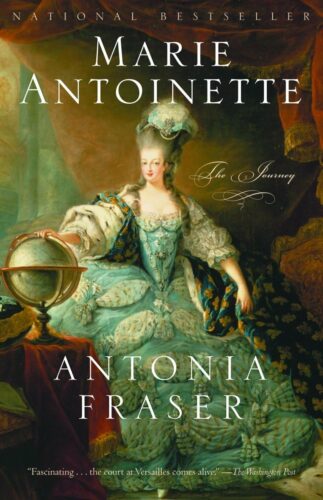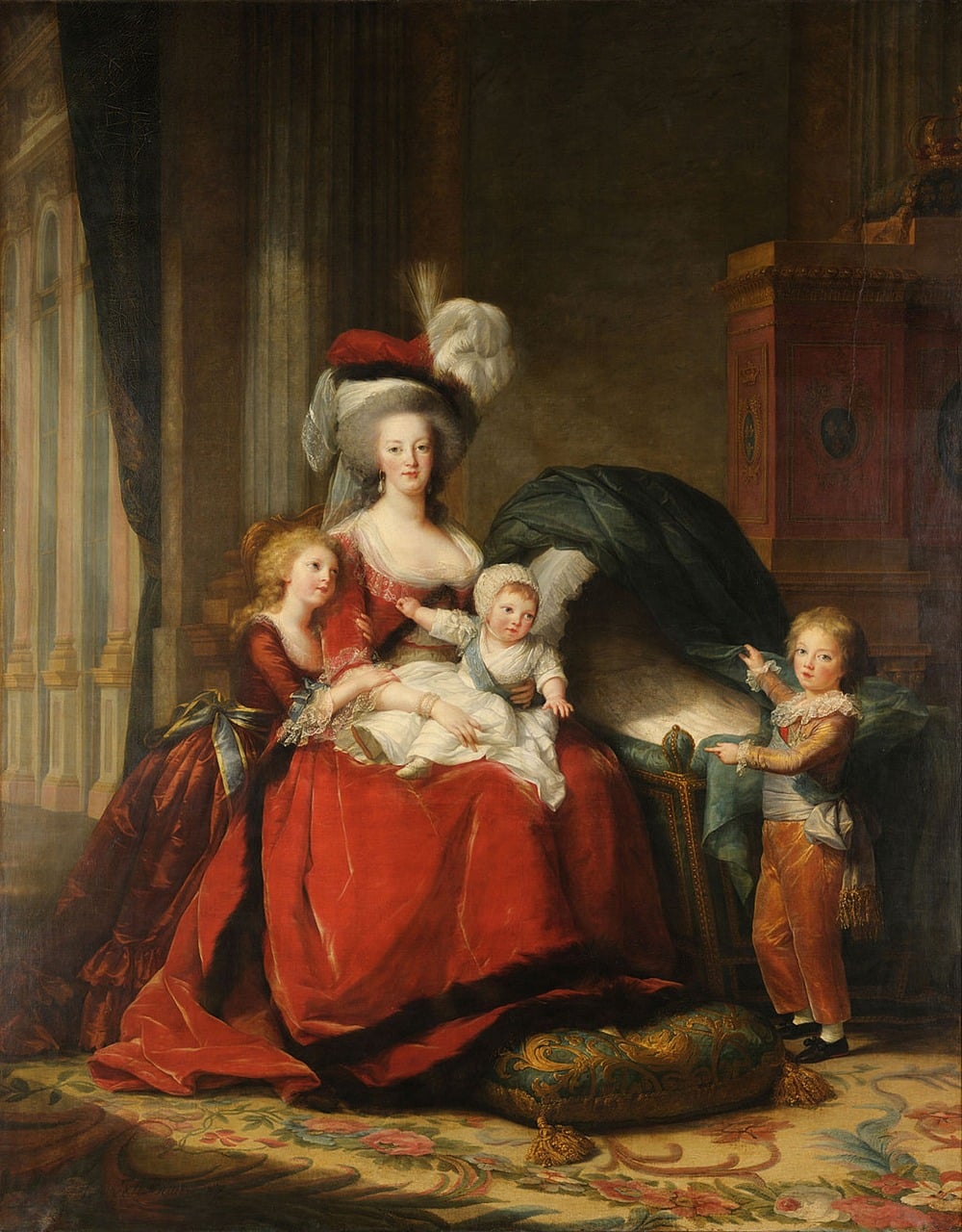 An Empathetic Look Into a Misunderstood Monarch
An Empathetic Look Into a Misunderstood Monarch
Author: Antonia Fraser
Historically, Marie Antoinette is known as a vicious, yet fashionable queen, with her two-foot-high powdered pouf and miniature recreated village in the Trianon. Famous for stating “let them eat cake” when confronted with the poverty and starvation of French peasants, she was also known for her perversions and anti-France political machinations. But was Marie Antoinette as evil and extravagant as history has painted her, or was she in truth the victim of propaganda and discrimination?
Antonia Fraser takes on Marie Antoinette’s life, from infancy to her execution, in this 500+ page opus. It’s not an easy book to read because of its density and the fractured and complicated political world of the time. Fraser’s key point, however, shines through. This is not an objective work. Instead, Marie Antoinette: The Journey is a testament to a misaligned monarchy, functioning as half excuse and half exoneration. Is it accurate? That’s hard for the average, non-historically educated reader to know. There are certainly enough quotes and references to other works here, but more than anything, the guiding edge seems to be Fraser’s own imagination, and while Marie Antoinette may not have been the villain portrayed by history, neither is it likely that she is Fraser’s unblemished, innocent hero. The truth, like all things, probably lies somewhere in between.
Marie Antoinette was not born with expectations, and she was not educated for her future role. Fate (the death of a sibling) promoted her into a child marriage, where she was basically sold to Louis XVI, who is represented as a harmless, blundering king. The man was not meant to rule, but neither was there harm in him, Fraser seems to argue. Louis XVI, then, was a victim too, at least in this recounting of the tale.
The couple has trouble conceiving due to Louis XVI’s seven-year reticence to consummate the marriage, and Marie Antoinette is depicted as a longing, languishing want-to-be mother. This is the role she will assume for the entire narrative, and while history does prove the point that she was more involved than most royal women at the time, Fraser argues that Marie Antoinette was also completely uninterested and incapable of anything political. Her naivety and disinterest, indeed, leaves her open to being consumed by a vicious political system.
As the story continues, Marie Antoinette’s excesses are excused lavishly. She was lonely, bored, sold into this new life, desperate to be a mother, hated because she was not French. There is probably some truth to this. History has proven that wealth and privilege often lead to boredom, to excesses to compensate for some missing feeling, and my heart does go out to women of that (and any) time period who are forced into a marriage, especially as a child, for political or other reasons. Yet the living conditions of the French people are never really addressed. With all her attention to fine detail, Fraser does not delve into that side of history, instead staying laser focused on Marie Antoinette to the exclusion of all else. This makes the revolution seem even more unexpected, unjust, and violent. But . . . is that the full truth? The complicated grey areas in between, the dissonance between the affable, ineffectual royalty with their complete lack of awareness and the vitriolic peasants who are demanding blood are never addressed. This is a stark, black and white picture that Fraser paints, and despite her passion for the representation, I have issues believing it. If nothing else, the royalty was at least guilty of being so oblivious and self-centered as to not have noticed the deprivation in France, the lack of resources and food. The spending, as Fraser herself is forced to admit, never abates, and the lushness of the dress, parties, and various houses continued . . . a panacea to a bored queen.
This is not to say that Marie Antoinette: The Journey was not an engaging book, but I wonder as its veracity. If you only have time to read one book on Marie Antoinette, then I recommend finding a more circumspect one, and one that is a little less dense. Despite Fraser’s attempts to explain all the politics, it soon became too many people and too many things. I needed more focus, more clarity, and reminder explanations to keep it all together. A true historian, or even a hobbyist, will probably have no trouble on these fronts, but from the perspective of a casual reader, this book could become tedious and unfocused at times.
Nevertheless, I feel like I have a better picture of Marie Antoinette’s life now and understand some of her tribulations better. I do feel that the accusations of lesbianism and unnatural acts with her own son were completely unfounded. However, I cannot imagine her as the fully innocent figure painted here. Human complexity demands more than that, especially in such a prominent, influential position. Interesting book, I’m glad that I read it, but I don’t think this is the definitive source for all things Marie Antoinette, unless you are specifically looking for a sympathetic approach.
– Frances Carden
Follow my reviews on Twitter at: https://twitter.com/xombie_mistress
Follow my reviews on Facebook at: https://www.facebook.com/FrancesReviews
- Book Vs Movie: The Shining - April 6, 2020
- Thankful For Great Cozy Mysteries - December 13, 2019
- Cozy Mysteries for a Perfect Fall - October 20, 2019



